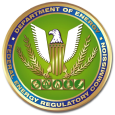Joan Dreskin, Senior Vice President and General Counsel of the Interstate Natural Gas Association of America (INGAA), issued the following statement on Order No. 871-B from the Federal Energy Regulatory Commission (FERC):
“The Commission appropriately recognized in Order 871-B that Order 871 was overbroad and unclear in numerous respects. But unfortunately, Order 871-B exacerbates the core challenges to energy infrastructure development that were created by Order 871 by unlawfully imposing a presumptive stay of all future Natural Gas Act Section 7(c) certificates. This presumptive stay is a dramatic departure from 80 years of precedent and will effectively add up to five months of additional delay at FERC for needed infrastructure projects that the Commission itself has already found to be required by the public interest.
These new delays will significantly increase the costs of building natural gas infrastructure, and postpone jobs for those working to build this infrastructure, at a time when our country needs reliable, affordable supplies of natural gas. Natural gas is a foundational fuel of our economy that has helped keep energy prices low, enable emissions reductions, and complement the growth of renewable energy. Order 871-B will harm families, businesses, and manufacturers that rely on the energy delivered by pipeline projects—delays in developing needed energy infrastructure will increase energy costs until the infrastructure can be built. The presumptive stay created by Order 871-B imposes these additional delays and costs with little real benefit to landowners or other stakeholders—as even the Commission recognizes, under existing laws and judicial precedent, the courthouse doors are already open to landowners and other stakeholders to protect their interests, without the need for this blunt and overbroad stay.”
###
INGAA represents the U.S. natural gas pipeline industry. INGAA’s members deliver clean, abundant, affordable natural gas throughout North America and operate approximately 200,000 miles of pipelines that serve as an indispensable link between natural gas producers and consumers.





